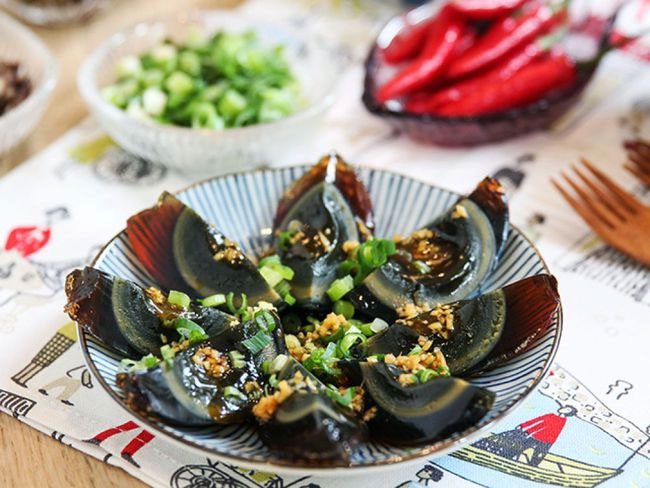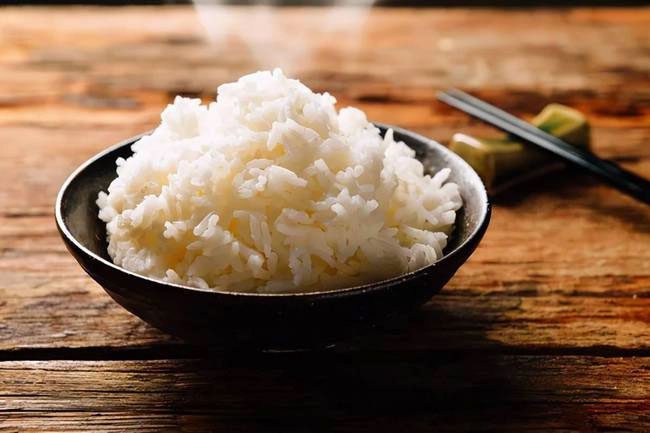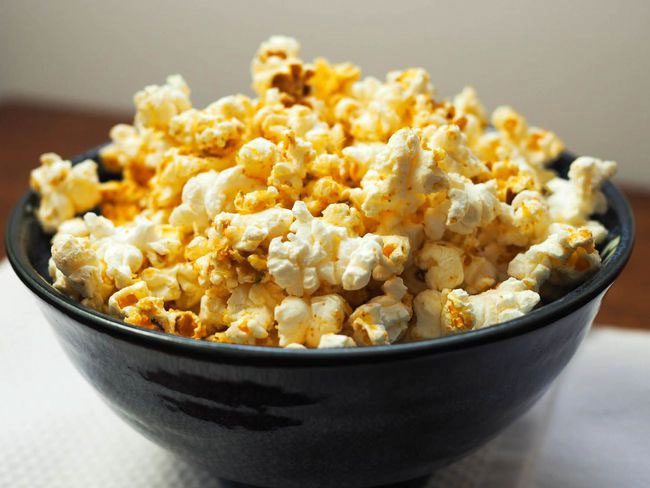Understanding the types of food you consume daily can help alleviate any worries or concerns about them.
1. Century Eggs

Myth: Century eggs contain heavy metals.
Fact: Certified century eggs do not contain heavy metals and are a source of high-quality protein.
Dr. Truong The Hanh at the Lianqing Clinic in China states: “The black color of the egg is due to protein denaturation. Its nutritional content is similar to that of other eggs. The only difference is that the zeaxanthin may be lost during the century egg preparation process“.
2. Soybeans
Myth: Rich in phytoestrogens, excessive consumption can cause gynecological cancers.
Fact: Plant hormones differ from animal hormones, and regular consumption has minimal impact on human bodies. Isoflavones in soybeans are beneficial. Researchers have shown that moderate soybean consumption can reduce cancer risk.
According to Dr. Tu Tu Vien, a nutrition expert at Taipei Hospital: “In a normal diet, the phytoestrogen content does not directly affect organs in the human body. Therefore, phytoestrogens do not significantly contribute to fibroid development“.
Moreover, isoflavones in soybeans are a type of phytoestrogen. Some studies indicate that moderate soybean consumption not only does not increase the likelihood of breast cancer but may also reduce the risk. The American Cancer Society confirms that consuming soy products may help lower the risk of breast, prostate, and endometrial cancers.
3. Brown Sugar

Myth: Contains acrylamide, which can cause cancer if consumed in large quantities.
Fact: Acrylamide has not been confirmed to cause cancer in humans. In reality, very few people consume large amounts of brown sugar daily.
Dr. Tran Hieu Vy, a food science expert and nutritionist in China, explains: “Deep-fried and high-temperature roasted foods can produce acrylamide, but the levels are within permissible limits. However, grilled meat is much more dangerous as it generates higher acrylamide levels“.
Proteins in food and sugar at high temperatures can char and change color, potentially creating acrylamide. Currently, there is only evidence of acrylamide being carcinogenic in animals. Epidemiological studies are still insufficient to prove it as a carcinogen in humans.
Additionally, unlike refined white sugar, brown sugar retains more trace minerals, such as magnesium and potassium, which help stabilize the nervous system. Traditional Chinese medicine often advises women with menstrual cramps to consume brown sugar to alleviate pain.
4. White Rice

Myth: The nutritional value of white rice is low; excessive consumption can cause rapid blood sugar spikes, which is not good for diabetics.
Fact: White rice still contains nutrients such as iron, calcium, potassium, phosphorus, and B vitamins.
In traditional Chinese medicine, white rice is believed to nourish the spleen and stomach, supporting digestive health.
Dr. Van Phuong in China advises: “Patients should not consume too much white rice and should actively include foods like fish, eggs, and milk before rice. It’s especially important to monitor weight to control blood sugar levels“.
5. Popcorn

Myth: Like some snacks, popcorn is considered an unhealthy food.
Fact: If not mixed with flavoring agents and additives, popcorn is a relatively healthy snack. This is because corn is rich in fiber, resistant starch, and antioxidants.
The fiber and polyphenol antioxidant content in popcorn is significant. Resistant starch differs from regular starch; it is a type of starch that is not absorbed by the intestine, providing food for gut bacteria and fostering the growth of beneficial microbes. A healthy gut can reduce the risk of diabetes and many other diseases.



















































